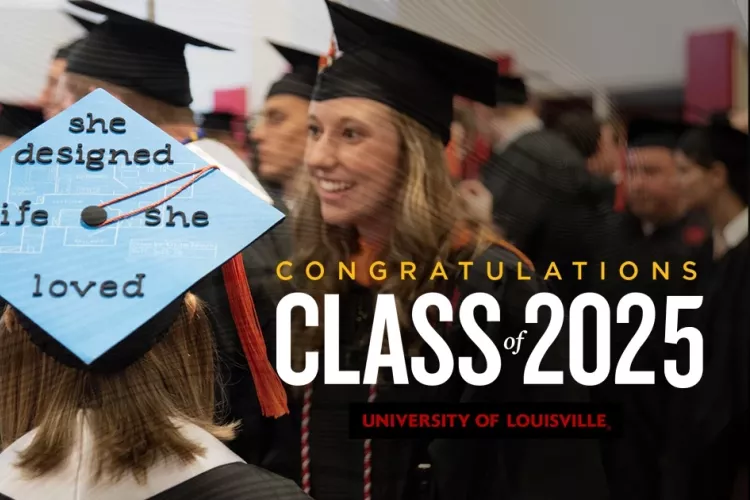UofL Health - Brown Cancer Center celebrates 40 years
October 2, 2024The UofL Health - Brown Cancer Center is celebrating 40 years of conducting groundbreaking research and providing care to hundreds of thousands of patients. The ultimate goal of Brown Cancer Center is to end cancer.
“The disease of cancer used to be terminal,” explained Jason Chesney, director of Brown Cancer Center. “Today, most of our patients are living long lives because of the treatment we offer. It’s a dramatic change.”
The Brown Cancer Center (BCC) first opened in 1981, four years after the Regional Cancer Center Corporation (RCCC) raised nearly $12 million for its construction and operation. At the time, UofL Physicians took care of about 50 patients a day. Today, they care for over 500 patients per day. The number of oncologists has grown from seven in the early 1980s to nearly 80 now. As late as 1999, BCC hosted four clinical trials. In 2022, there are more than 130 open clinical trials. In addition to patient care, more than 65 University of Louisville faculty investigators conduct basic and translational research to find new and better ways to prevent, diagnose and treat cancer.
“Certainly, much has evolved in the science and technology of cancer treatment after 40 years, and I’ve enjoyed seeing the depth of talent develop in many specialties of oncology,” said Henry V. Heuser, Jr., an RCCC board member who helped lead this effort alongside several other architects of change, including Lt. Gov. Wilson Wyatt.
The Brown Cancer Center offers dozens of services, including treatment for breast cancer, endocrine cancer, gastrointestinal cancer, lung cancer, bone cancer, skin cancer and more. In 2021, the Brown Cancer Center expanded its services to UofL Health – Medical Center Northeast and UofL Health – Mary & Elizabeth Hospital, further opening up access to treatment for patients.
Forty years ago, the Louisville community came together to ensure local cancer patients did not have to travel to get the best possible cancer treatments. In a state with some of the highest rates of cancer and cancer deaths, Kentuckiana made a considerable investment to create an academic cancer center that would lead the charge in the war on cancer and educate the next generation of oncologists and cancer researchers.
“The Brown Cancer Center has a remarkable legacy but, most importantly, it is positioned to dramatically shape the future,” said Tom Miller, UofL Health CEO. “Of all the cancer teams I’ve worked with across the country, this group of clinicians and researchers is the most dedicated I’ve seen. When a cure for cancer is discovered, and I believe the cure will be discovered here, it will because of the collaborate and compassionate dedication of all those at our Brown Cancer Center.”
Since opening the doors in 1981, the BCC has been the site of significant research breakthroughs and groundbreaking treatments.
Major cancer research discoveries at the Brown Cancer Center include:
- Development of the first anticancer drugs that inhibit cancer cell metabolism
- Discovery and first in world trial of anticancer DNA aptamers (AS1411)
- Creation of the world’s largest nonprofit computer grid in Kentucky High Schools, already used to discover more than 20 new anticancer drugs
- The first clinical trial of cancer metabolism, following the date of glucose at the ATOMIC level
- The discovery of a novel population of multipotent stem cells called Very Small Embryonic-Like (VSELs).
- Development of the first stem cell vaccine to prevent cancer
- Clinical trials of beta-glucans as immune-stimulants in combination with therapeutic monoclonal antibodies
The Brown Cancer Center's milestones in the clinical arena include:
- 1990: Creation of Kentucky’s first mobile mammography program to reach underserved communities providing access to advanced cancer screenings
- 2002: Dedication of the Molecular Imaging Research Center, housing Kentucky’s first positron emission tomography/computed tomography (PET/CT) scanner and a Nuclear Magnetic Resonance (NMR) suite that serves as a catalyst for advanced cancer research
- 2010: The Multidisciplinary Breast Cancer Program became the first in Kentucky to receive full three-year accreditation from the National Accreditation Program for Breast Centers.
- 2017: The first melanoma patient undergoes TILs procedure
- 2019: Creation of a Good Manufacturing Practices Facility and the Dunbar CAR T-Cell efforts where the patient’s white blood cells are re-engineered with a chimeric antigen reception (CAR) into the T-cells, multiplied by the millions then infused back into the patient where they bind to an antigen on the cancer cells and destroy them
- 2021: Expanded services to UofL Health – Medical Center Northeast and UofL Health – Mary & Elizabeth Hospital, further opening access to treatment for patients



